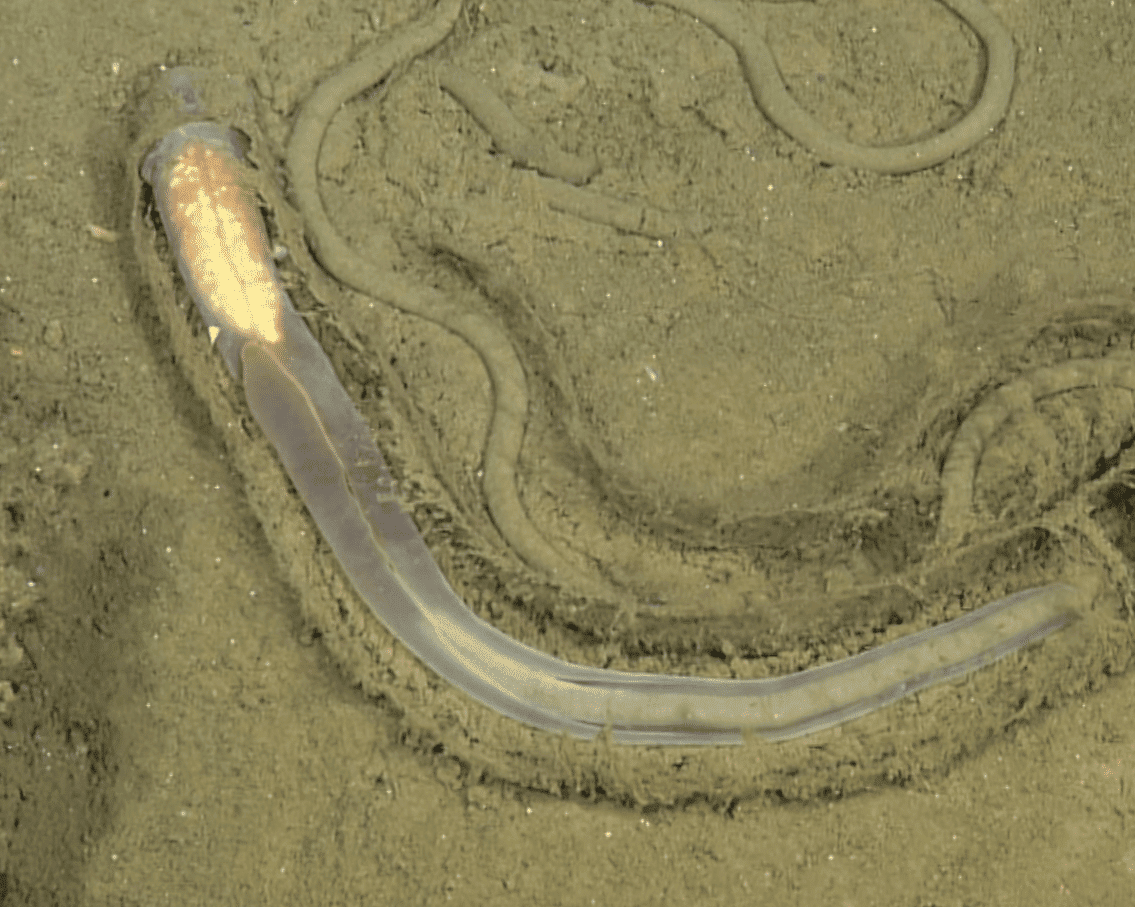In the depths of the ocean resides a creature that plays a surprisingly crucial role in our planet’s climate system. The acorn worm is part of a group known as Enteropneusta. Despite their worm-like appearance, acorn worms are more closely related to humans than to actual worms. They are named for their acorn-shaped front end and are significant players in the ocean’s biological pump, a process vital for climate regulation.

Understanding Acorn Worms
Acorn worms are fascinating for their biological similarities to humans. They have a rudimentary nerve cord akin to ours and gill-like structures for breathing oxygen. Advanced robotic technology and time-lapse cameras have enabled scientists to study these creatures in the harsh conditions of the deep sea, shedding light on their behavior and ecological importance.
The Biological Pump and Marine Snow
The biological pump is a cycle that connects the ocean’s surface with its deepest communities. Carbon dioxide from the atmosphere dissolves into the ocean’s surface, where plankton convert it into organic material. This material, along with waste and remains from other marine organisms, forms a flurry of particles known as marine snow. As this snow sinks, it carries nutrients and carbon to the ocean floor, where bottom-dwelling creatures like acorn worms feast on it.
Feeding Habits and Ecological Contributions
Acorn worms feed on organic material mixed in the mud, often in a tight circular pattern. In areas rich in food, they consume voraciously, but when resources are depleted, they empty their guts to become buoyant and float to new feeding grounds. Their presence is sometimes only indicated by unique trails across the ocean floor.
These creatures play a significant role in recycling the top layers of sediment, a task they complete in just a few weeks. This recycling process is crucial for redistributing sediment and nutrients in deep-sea communities.
Connection to Climate Change
Acorn worms are intricately linked to the carbon cycle and, by extension, to climate change. Their role in redistributing sediment and nutrients helps regulate the climate. As they contribute to the health of our planet, it becomes increasingly important for us to drastically reduce our carbon dioxide emissions.
The Importance of Acorn Worms
Often overlooked, deep-sea dwellers are vital in maintaining the balance of our planet’s ecosystems. Their contribution to the biological pump demonstrates the complexity and importance of oceanic processes in global climate regulation.
You might also enjoy:
The World’s Most Dangerous Bird
Prague Zoo Welcomes the Birth of an Adorable Baby Gorilla
Megalodon Tooth Found in the Middle of The Pacific Ocean
Join our Forum for free today!

- The Bond Between a Wild Baby Bison and Her Rescuer - July 20, 2024
- An Excited Husky’s First Ever Time in Snow - July 20, 2024
- Top 20 Colorful Species To Brighten Your Day - July 14, 2024


